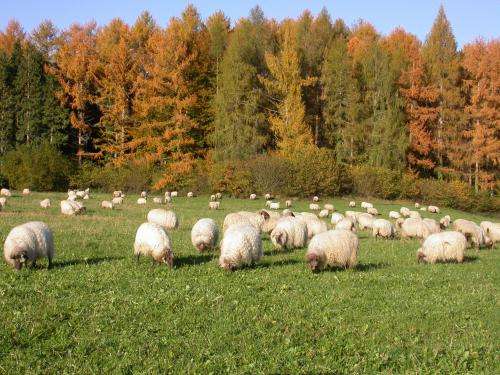Regenerative practices to achieve more fertile soil and pastures with greater plant biodiversity

To obtain healthier, more fertile pastures with greater plant biodiversity is the aim of the LIFE Regen Farming project, led by Neiker-Tecnalia, the Basque Institute of Agricultural Research and Development. The aim of the initiative is to identify, demonstrate and transfer best practices in pasture management and propose that stockbreeders and farmers adopt regenerative agriculture techniques that will allow the soil to be managed more effectively and more sustainably. For this project, Neiker-Tecnalia's partners are the Navarrese Institute of Food Technologies and Infrastructures (INTIA) and the Municipal Public Corporation of Orduña Town Council (Urdeñuderra S.L.). The research has been chosen as part of the European Commission's LIFE+ programme.
The quest for greater agricultural and livestock production has led to the soil where the pastures are located being subjected to intensive production practices that lower its quality and sustainability. To address this problem, Neiker-Tecnalia is proposing that five basic lines of action based on regenerative agriculture be tested: the eliminating of pesticides, herbicides and chemical fertilizers; the use of organic fertilizers; the direct sowing of pastures; the use of perennial herbaceous species, and planned grazing of herds. These new practices will undergo tests over the next three years to determine their viability from the environmental and economic point of view.
The practice known as direct sowing is done by making small holes in the soil where the seeds are scattered. This method avoids the digging of furrows that are conventionally used in agriculture and which erode the pasture soil. The use of perennial herbaceous species enables the grass to last more years, which preserves soil integrity for longer.
Technicians from the three organisations involved in LIFE Regen Farming will likewise be looking into the possibilities of so-called managed grazing. It is about taking the livestock to specific places at the most suitable moments in order to optimize pasture output and use. They will also be looking at whether the pastures should be left fallow for a specific time to allow the soil to regenerate.
Trials in Arkaute, Roncesvalles and Orduña
The trials are scheduled to take place on pastures located on Neiker-Tecnalia land in Arkaute (Álava-Araba); on land belonging to INTIA in Roncesvalles (Navarre); and in meadows for organic production devoted to the grazing of sheep of the latxa breed; and in Orduña, on pastures for milk- and meat-producing cattle. The aim is to test these regenerative practices in a range of agro-climatic conditions in order to assess the outcome of the new practices when applied to soil of different characteristics.
The research, due to be completed in June 2016, is mainly targeting stockbreeders, farmers, primary sector technicians, schools of agriculture and grazing as well as the local administrations. The results of LIFE Regen Farming will be put to use in managing the pastures in a more effective, sustainable and profitable way.
Provided by Neiker-Tecnalia
















